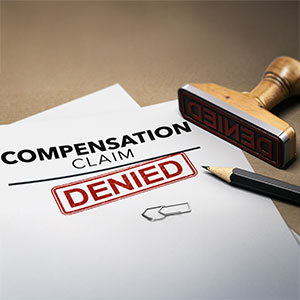2021 Changes to Fla R. Civ. P. 1.510
Personal InjuryIn SC20-1490 (December 31, 2020), the Florida Supreme Court amended the Florida Rules of Civil Procedure 1.510 to make it easier for judges to decide issues at a summary judgment hearing rather than a jury trial.
The Old Rule v. The New Rule
Fla. R. Civ. P. 1.510(c) (prior to the amendment taking effect May 1, 2021) require summary judgment where “there is no genuine issue as to any material fact and that the moving party is entitled to a judgment as a matter of law.”
The key word in the rule is “issue” as it has been changed to “dispute” in the new rule, modeling itself after Federal Rule of Civil Procedure 56(a). Under the old rule, any dispute as to a material fact was enough to prevent a judge from granting summary judgment (or, “judgment as a matter of law”).
Under the new rule (again, taking effect May 1, 2021), “issue” has been changed to “dispute” to match the summary judgment standard in federal court as articulated in Celotex Corp. v. Catrett, 477 U.S. 317 (1986); Anderson v. Liberty Lobby, Inc. 477 U.S. 242 (1986); and Matsushita Electric Industrial Co. v. Zenith Radio Corp., 475 U.S. 574 (1986). The Florida Supreme Court also points out that a “supermajority of states” have already adopted the federal summary judgment standard.
Purpose of “Just, Speedy, and Inexpensive” Determination of Every Action
The stated purpose of the rule change is “to secure the just, speedy, and inexpensive determination of every action.” Prior to the rule change, Florida courts “required the moving party [to] conclusively … ‘disprove the nonmovant’s theory of the case in order to eliminate any issue of fact” (Hall v. Talcott, 191 So. 2d 40 (Fla. 1966).
According to the opinion, a leading legal treatise characterized the Florida summary judgment standard below:
“[T]he existence of any competent evidence creating an issue of fact, however credible or incredible, substantial or trivial, stops the inquiry and precludes summary judgment, so long as the ‘slightest doubt’ is raised.” Bruce J. Berman & Peter D. Webster, Berman’s Florida Civil Procedure §1.510:5 (2020 ed.).
This “problem” with the “old rule” surfaced in the decision in Wilsonart, LLC v. Lopez by the Florida Supreme Court on December 31, 2020 wherein the “old rule” was used to uphold a denial of summary judgment in a truck accident case where video evidence clearly contradicted the plaintiff’s story of how the accident happened.
How this “new rule” will be tested and live up to its stated purpose remains to be seen. Perhaps some trial judges will use the new rule to more boldly decide cases. Or, perhaps trial judges may find themselves reluctant to take away a party’s “day in court” with a jury outside of circumstances that were similar to that of the Wilsonart case.
The real takeaway from the rule change should be that cases involving only a colorable legal claim (but which might not be completely academically honest) are more at risk of getting thrown out of court by a judge at a summary judgment and, therefore, perhaps more scrutiny should be given to such “questionable” cases by the lawyers and litigants in the first place. Hence, the power of judges will be slightly greater following the implementation of the rule but the role of judges in keeping litigation honest is ultimately the same.
On the other hand, colorable legal claims brought in good faith may enjoy more leeway with the judges. The new rule should not be used to gain an advantage for political or other gain.
Help For Your Florida Injury Case
At Russo Law, we would like to help you with your Florida injury lawsuit. To have the best chance at success in Florida’s legal system, you should have an experienced advocate to help you make the right moves along the way. Call us for a free consultation on your Florida personal injury case.


